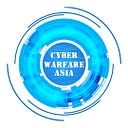Facebook turns down foreign influence operations targeting Africa and Middle East
On December 15, Facebook removed two Russia-based networks and one linked to the French military accusing them of carrying out interference campaigns in Africa and the Middle East.
The reports tied two of the campaigns to Yevgeniy Prigozhin, the Russian oligarch nicknamed as “Putin’s chef” for his close ties with the Russian President Vladimir Putin. Prigozhin was sanctioned by the U.S. government after Russia’s Internet Research Agency, which he financed, tried to meddle in the 2016 and 2018 elections.
Countries in the Middle East had increasingly turned to social media sites such as Facebook, Twitter TWTR.N and Google’s GOOGL.O YouTube to peddle covert political influence online. The Saudi American Public Relation Affairs Committee (SAPRAC), a pro-Saudi lobby group, paid $2.6 million to Washington-based lobbying firm the Podesta Group for public affairs services that included running the anti-Qatar website. Similarly, Qatar took help from Egyptian companies New Wave and Flexell for running anti-UAE; anti-Saudi campaign. A Tehran-based agency “Nile Net online” has quietly fed propaganda through at least 70 websites to countries from Afghanistan to Russia.
Facebook’s move came ahead of elections Dec. 27 in the Central African Republic (CAR), which Facebook identified as the main target of the disinformation, at a time when both France and Russia have been manipulating for influence in the region. Ben Nimmo, head of investigations at social media analytics firm Graphika, said both campaigns used fake accounts to pose as local people, sometimes sharing doctored photos.
Earlier also Graphika released a report related to similar disinformation campaigns run by a few Middle Eastern countries to serve their nation’s interest.
Facebook said that it had taken down the network of accounts that tried to meddle in the Central African Republic, which were among almost 500 inauthentic Facebook and Instagram accounts, pages and groups that targeted users in several African and the Middle Eastern nations with posts about COVID-19, politics or the military.
The French military said in a statement Thursday to The Associated Press that it “firmly condemns” such disinformation efforts and is working alongside the U.N. and European partners to bring peace to the CAR.
“We are examining the results (of the Facebook-Graphika investigation), but at this stage, we’re not able to confirm any responsibility. There are many stakeholders in this struggle, public and civilian, which makes it difficult to assess the situation clearly,” the statement said.
